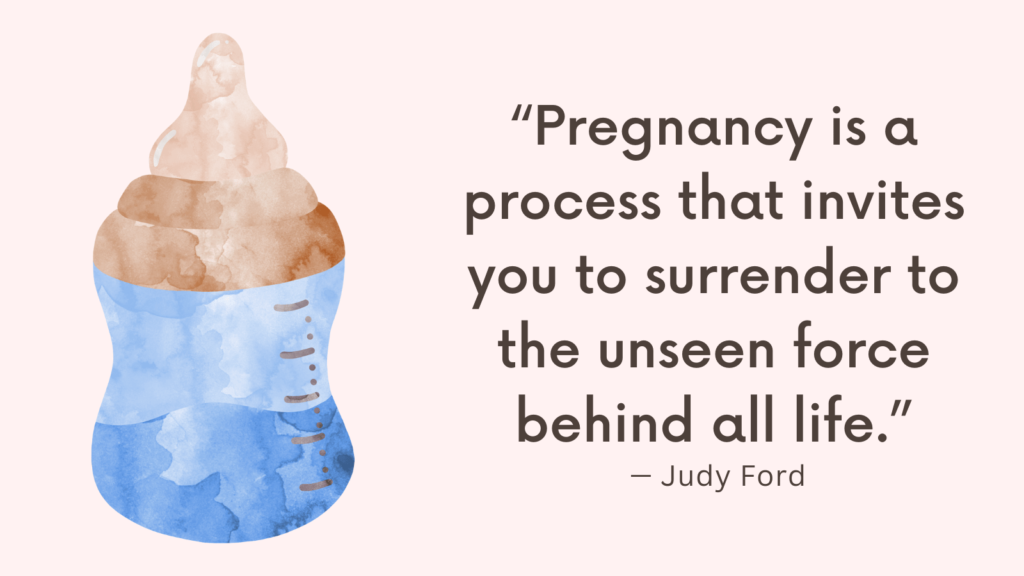Possible Braxton Hicks contractions, back pain, and more vivid dreams.
You’re 26 weeks pregnant! You’re getting closer to the third trimester, and your baby is growing fast, moving more, and preparing for life outside the womb. Your belly is expanding, and you may start experiencing stronger kicks and new pregnancy symptoms.
Let’s explore your baby’s development, changes in your body, and how to manage symptoms at 26 weeks pregnant.
What’s Happening to Your Baby?
At 26 weeks, your baby is about the size of a butternut squash (23-25 cm or 9-10 inches long, head to toe) and weighs around 800-900 grams (1.7-2 lbs). Your little one is gaining weight, developing senses, and practicing for birth.
Major Developments This Week:
Baby’s Brain Is Growing Rapidly! – Brain activity is increasing, and baby may start to experience REM sleep (dreaming!).
Lungs Are Continuing to Develop! – Baby is practicing breathing movements, preparing for life outside the womb.
Baby’s Eyes Are Opening! – The eyelids, which were shut, are now starting to open.
Movements Are Stronger & More Frequent! – Baby’s kicks, stretches, and rolls are easier to feel.
Baby Reacts to Light & Sound! – Baby may turn toward bright light or respond to loud noises.
Hearing Is Fully Developed! – Your baby can hear voices, music, and sounds from outside the womb.
Taste Buds Are Functioning! – Baby can taste flavors in the amniotic fluid.
What’s Happening to Your Body?
At 26 weeks pregnant, you may notice stronger baby movements, a growing belly, and some new pregnancy symptoms.
Common Symptoms at 26 Weeks Pregnant:
Feeling Stronger Baby Kicks! – Baby’s movements are more frequent and noticeable.
Growing Baby Bump! – Your uterus is now about 2.5 inches above your belly button.
Back Pain – Your growing belly shifts your posture, leading to discomfort.
Round Ligament Pain – Stretching or pulling pain in the lower belly as your uterus expands.
Leg Cramps – More pressure on your legs and mineral imbalances can lead to cramps, especially at night.
Swelling in Feet & Ankles (Edema) – Fluid retention may cause mild swelling.
Shortness of Breath – Your uterus is pressing on your lungs, making deep breaths harder.
Braxton Hicks Contractions – Mild, irregular “practice” contractions may happen more often.
Heartburn & Indigestion – Hormonal changes slow digestion, leading to acid reflux.
Frequent Urination – Your growing uterus is pressing on your bladder.
Forgetfulness or “Pregnancy Brain” – Hormonal shifts may affect memory and concentration.
How to Cope with Week 26 Pregnancy Symptoms
1. Tracking Baby’s Movements
Movements may follow a schedule (most active after meals or at night).
If movements slow down significantly, contact your doctor.
Encourage movement by drinking cold water or gently poking your belly.
2. Easing Back Pain
Maintain good posture and avoid slouching.
Use a pregnancy pillow for support while sleeping.
Do gentle stretches or prenatal yoga to ease back pain.
3. Preventing Leg Cramps
Stretch your legs before bed to reduce cramping.
Eat calcium and magnesium-rich foods like dairy, bananas, and nuts.
Massage your legs or apply heat if cramps occur.
4. Handling Round Ligament Pain
Stretch gently or try prenatal yoga to relieve tension.
Change positions slowly to avoid sudden discomfort.
Use a belly band for extra support if needed.
5. Reducing Swelling in Feet & Ankles
Elevate your feet when sitting or lying down.
Wear comfortable shoes and avoid tight socks.
Drink plenty of water to reduce water retention.
6. Reducing Shortness of Breath
Sit and stand up straight to give your lungs more space.
Take deep breaths and slow down when needed.
Sleep with extra pillows to elevate your upper body.
7. Managing Braxton Hicks Contractions
Stay hydrated – Dehydration can trigger contractions.
Change positions – Moving around or resting may help them go away.
Contact your doctor if contractions become painful or regular.
8. Preventing & Soothing Stretch Marks
Use a gentle moisturizer to keep skin hydrated.
Wear loose, breathable clothing to reduce irritation.
Drink plenty of water to support skin health.
9. Dealing with Pregnancy Brain (Forgetfulness)
Write things down – Make lists or use reminders on your phone.
Get enough rest – Fatigue can make memory problems worse.
Stay organized – Keep important items in the same place.
What Should You Be Doing in Week 26?
Since you’re approaching the third trimester, here’s what to focus on this week:
1. Keep Attending Prenatal Appointments
Your doctor will check your uterus size, baby’s heartbeat, and overall health.
You may schedule your glucose screening test for gestational diabetes (usually done between 24-28 weeks).
2. Keep Taking Your Prenatal Vitamins
Ensure your vitamin contains 400-800 mcg folic acid for brain and spinal cord development.
A vitamin with DHA & Omega-3s supports baby’s brain growth.
3. Eat a Healthy Pregnancy Diet
Include protein-rich foods like eggs, chicken, and tofu.
Eat calcium-rich foods like yogurt, milk, and cheese.
Stay hydrated – Drink at least 8 glasses of water daily.
4. Track Your Baby’s Movements
Start noticing baby’s movement patterns throughout the day.
Movements will become stronger and more predictable in the coming weeks.
5. Research Childbirth & Parenting Classes
Consider signing up for prenatal classes about labor, delivery, and newborn care.
Some hospitals offer virtual or in-person classes.
6. Plan for Maternity Leave
Look into your workplace’s maternity leave policies and benefits.
If you plan to return to work after birth, start thinking about childcare options.
7. Start a Pregnancy Journal or App
Document how you feel each week.
Take weekly bump photos to track your progress.
Final Thoughts
You’re 26 weeks pregnant, and your baby is getting bigger, stronger, and more active! This is an exciting time, especially as you feel more movement and prepare for upcoming prenatal visits.
Your baby is developing tiny features, reacting to sound, and preparing for big growth ahead. Symptoms like back pain, heartburn, and leg cramps may still happen, but you’re doing an amazing job!


